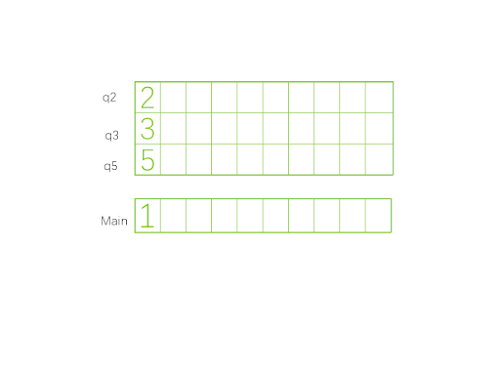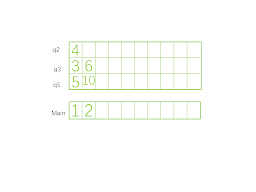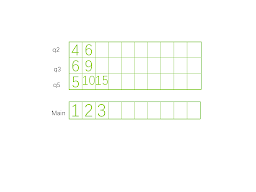UVA136 Ugly Numbers
Posted lcyanstars
tags:
篇首语:本文由小常识网(cha138.com)小编为大家整理,主要介绍了UVA136 Ugly Numbers相关的知识,希望对你有一定的参考价值。
Ugly numbers are numbers whose only prime factors are 2, 3 or 5. The sequence
1, 2, 3, 4, 5, 6, 8, 9, 10, 12, 15, ...
shows the first 11 ugly numbers. By convention, 1 is included.
Write a program to find and print the 1500’th ugly number.
Input
There is no input to this program.
Output
Output should consist of a single line as shown below, with ‘<number>’ replaced by the number computed.
Sample Output
The 1500‘th ugly number is <number>.
我们定义丑数为只含有2,3,5质因子的数,例如6=2×3,所以6是丑数,14=2×7,所以14不为丑数。1也为丑数,请求出第1500个丑数是多少?
我们很容易想到暴力算法,枚举每个数看它是不是丑数,然后计数即可。
#include <bits/stdc++.h>
using namespace std;
int n=1500,cnt=0;
int main()
{
for(int i=1; ;i++)
{
int t=i;
while((t&1) == 0)
t >>= 1;
while(t%3 == 0)
t /= 3;
while(t%5 == 0)
t /= 5;
if(t == 1)
cnt++;
if(cnt == n)
{
printf("The %d‘th ugly number is %d.
",n,i);
break;
}
}
return 0;
}
时间不够,怎么办?直接输出结果
我们可以想到,除1以外的丑数都是通过一个丑数分别×2,3,5得到,我们只要把得到的丑数放入队列,然后排序一下就好了。可排序又大大增加了时间复杂度,问题来了,怎么不通过排序保证主队列中的丑数单调递增呢?
将1放入主队列,建3个队列q2,q3,q5分别表示×2,3,5得到的丑数。q2,q3,q5各自进1x2,1x3,1x5的值。
我们可以肯定,q2,q3,q5最前面的数肯定比后面的大(因为后面的晚入队),只需要比较q2,q3,q5最前的数,将最小的数出队,放入主队列中,再在q2,q3,q5放入它×2,3,5的倍数就好了!值得一提的是,如果有两个或更多最小数,需要一起出队。当计数到1500时输出。(别忘了输出最后有句号)
上代码:
#include <bits/stdc++.h>
using namespace std;
int n=1500,cnt=2;
queue<int> q2,q3,q5;
int main()
{
q2.push(2);
q3.push(3);
q5.push(5);
if(n == 1)
return printf("The %d‘th ugly number is %d.
",n,n),0;
while(1)
{
int x2=q2.front(),x3=q3.front(),x5=q5.front();
int minn=min(x2,min(x3,x5));
if(cnt == n)
{
printf("The %d‘th ugly number is %d.
",n,minn);
break;
}
cnt++;
if(x2 == minn)
q2.pop();
if(x3 == minn)
q3.pop();
if(x5 == minn)
q5.pop();
q2.push(minn << 1);
q3.push(minn*3);
q5.push(minn*5);
}
}
以上是关于UVA136 Ugly Numbers的主要内容,如果未能解决你的问题,请参考以下文章


